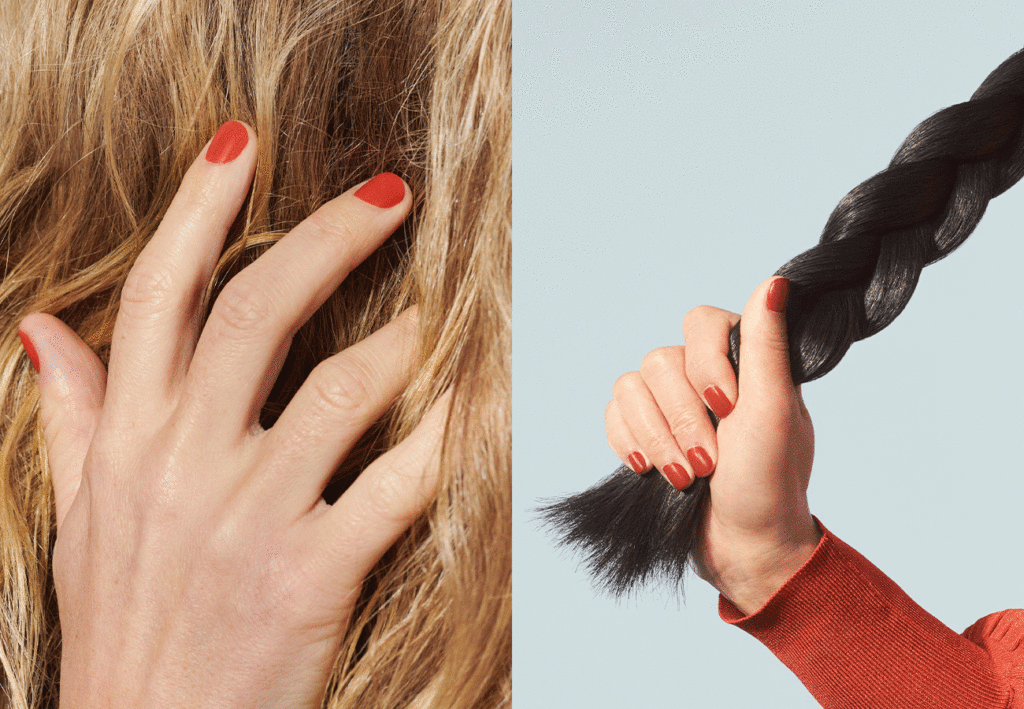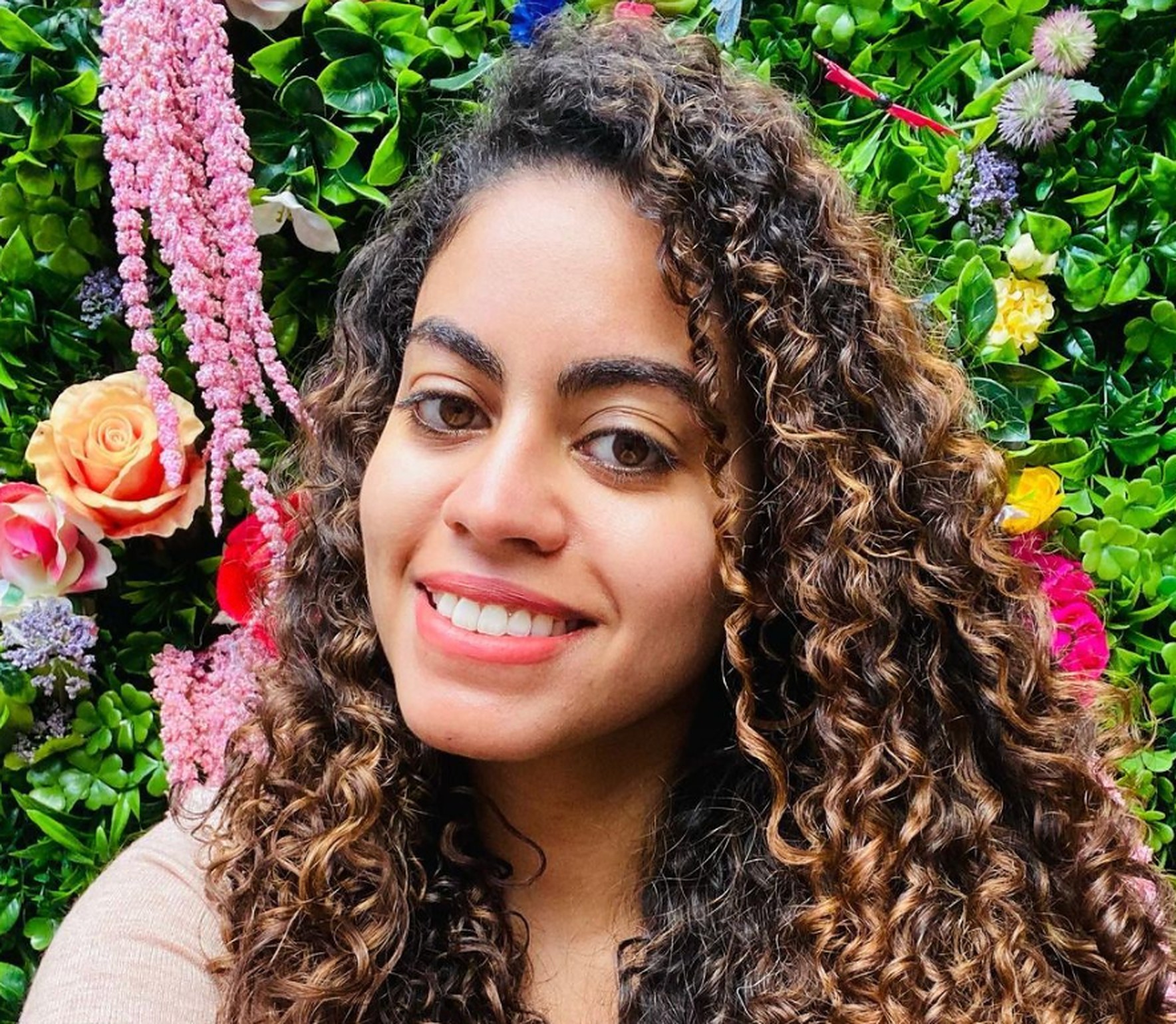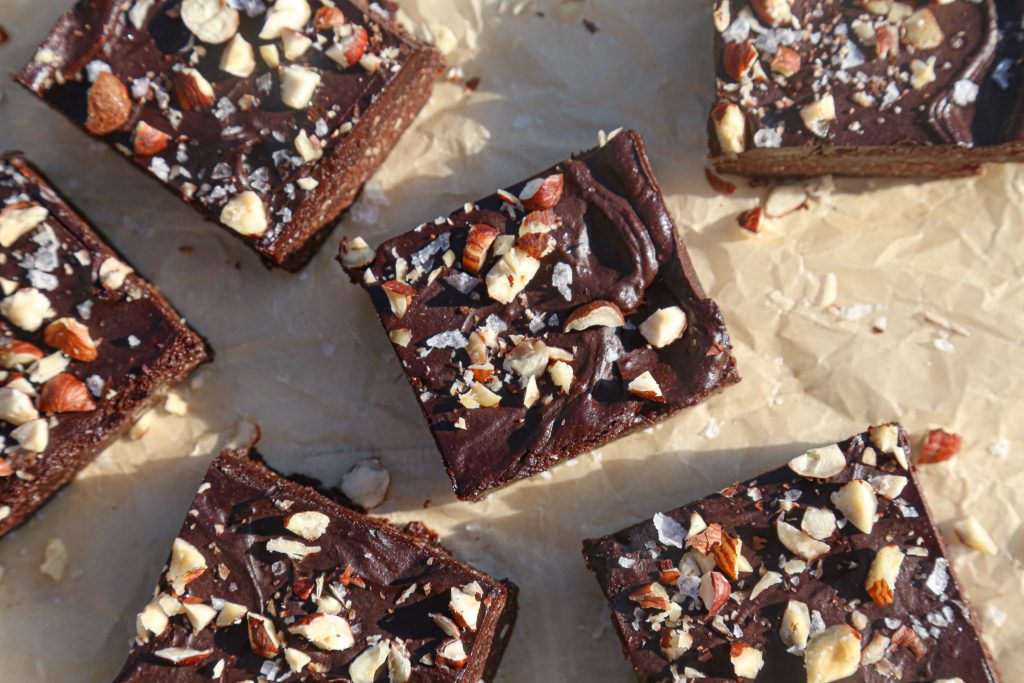In Luxembourg, when you’re going into your fourth year of high school, you chose a section to focus your studies on. They’re all specialized and help to determine what direction you’re going to go in for the rest of your schooling. Despite the math and physics-focused section being notorious for being the most challenging section students could choose, that’s the one I went with. It was definitely a different path that skewed away from my innate dream of working in fashion, but I felt that I needed to prove something to myself. So I took on the challenge and it turned out to be just as hard as everyone had said. There was a lot of chemistry, physics and computer science involved.
I remember walking into class and people questioning why I was there. I guess they’d see me in the hallway wearing something playful like a bright, green coat and assumed that because of the way I dressed I wasn’t serious about my studies or intelligent in general.

I had originally set out to prove something to myself, but ended up having to prove myself to my peers as well, which I did proudly. My plan for after high school was always to go to the Fashion Institute of Technology (FIT). My dad was actually the one who introduced me to the school because he had come across it through one of his many travels. So, I visited New York, took a tour of the campus, and that was it for me. I knew that FIT was the right fit. Plus, even though it’s not common where I’m from, I always planned to go to college in the US. People questioned why I would move so far away from home at just nineteen, but I had my mind set on it. I was like no, this has been a goal of mine for ten years, so I’m going to work for it and make it happen. No hesitation. That’s just the way I am. When I have a goal, nothing is going to stand in my way of reaching it. Any fears or doubts that could potentially creep in, I just move aside.
By the time I got to FIT my priorities had flipped from dreaming of being a designer to wanting to immerse myself in the business of fashion. I still couldn’t let go of math, so I did a minor in Math, (had to stay true to myself and keep that little character trait of mine alive) and Economics but also minored in Sustainability. Admittedly through high school I was a full on Zara addict, so once my eyes were opened to the realities of how polluting fast fashion is and was introduced to the world of sustainability and sustainable fashion, I knew I had to do my part to make a difference. It would be hypocritical of me to walk around preaching about recycling and using less plastic, while also supporting fast fashion, so I had to switch up my lifestyle.
I had always been interested in sustainability so my progression in the field was a natural one. In my third year at FIT, I switched my major to International Trade and Marketing and that’s actually also when I started minoring in Sustainability. Some of the topics we focused on were supply chain management, how clothes are produced, who produces them and we also went into the ethics of sustainability. Drifting off for a moment, there’s this website called Slow Factory that I love that discusses the connection between sustainability and social justice. I’m a huge fan of its founder Céline Semaan. But, back to school. I took a class called Psychology of Sustainability and during the course there was a project that challenged us to change one of our habits for ten days; something out of our norm. So, let’s say if you were a meat-eater and your goal is to be more green, you’d eat vegan for ten days. I was already living a pretty sustainable lifestyle, I was vegan and most of the clothes I wore at that point had been passed down or along to me from someone else, so I had to find a way to push myself. Eventually I landed on trying to emulate a zero-waste lifestyle. At the end of ten days, all of my waste fit into a mason jar, which I actually still have and look at from time to time as a bit of a reminder of what I did and can accomplish. Do I currently live a zero-waste lifestyle? No, but compared to the way I used to live, I’ve improved immensely and am still working on pushing myself further, as always.
Living that way took quite a lot of prep and work, which brings up the point that it is a privileged position to be in, to be able to be sustainable.

Which then goes into the social justice angle of sustainability. The fact that the wasteful actions we take here in the Western world, Europe, the US, etc., directly (and negatively) impact the lives of people living in Sub-Saharan Africa or Southeast Asia, is terrible. Those less socially privileged areas, if you will, are geographically located in warmer climates where let’s say if the sea levels rise, they’re going to be the first ones to face the consequences. But, it’s not because they’re the ones who are eating excessive amounts of meat or using a ton of plastic, it’s us. For example, Rwanda is a country where if you even dare to bring a plastic bag in, you’ll be put in prison. That’s how seriously they take it, but it’s because they know of the immediate ramifications that climate change has. They’re the ones who feel it first. So, we need to realize what a privileged situation we’re in and remember that we live in a global world. It’s not just us and we couldn’t live the way we do if it wasn’t for other countries that, for example, produce the goods that we consume.
Another aspect of the sustainability and social justice conversation considers people who may live in a food desert or maybe don’t have access to a Whole Foods where they can bring in their little canvas tote that’s reusable and made out of butterflies and rainbows. You know what I mean? Some people may not be able to purchase those products to begin with or don’t have time to prepare any complicated meals, they’re just in a pinch and need to grab the cheapest option, which may not always be the most sustainable one.
It’s necessary to raise awareness around that fact and ask ourselves how we can push our changemakers to adjust the offerings so that sustainable options are accessible to everyone and aren’t excessively priced.
Maybe that solution is something like the carbon tax, which basically puts a price on carbon. We know that in the US, big oil, big pharma, etc., rule the country and dictate how consumers behave. But, I think it’s very difficult right now to depend on the consumer to make all the adjustments that are necessary themselves. It’s up to these leaders and changemakers to do their job to, of course, implement change. A seemingly simple ask but, unfortunately, the reality is that it’s a long road that lies ahead of us. But, there are things we can do to help accelerate positive change.
To me it’s utopian to think that just everyone toting around their own water bottle will make a huge, global impact. I can’t stress enough the importance of participating in the strikes that pop up and writing letters to your politicians because they’re the ones who are in control and can, let’s say, limit the amount of CO2 that’s being emitted and invest in renewable energy. That’s really how differences will be made. But, if we’re talking on a smaller scale and on an individual level, I know I ragged on water bottles a bit a minute ago, but reusable containers are important.
Although, when I go to a convention and everyone is giving out water bottles and totes it annoys me because at that point it becomes wasteful. I have about ten water bottles at this point and don’t even want to look at another tote.

An easy switch that I’ve made is swapping out any wasteful, one-use makeup wipes or cleansing balms that come in plastic containers with these reusable, cotton wipes that I can easily wash after using. Another thing is to bring your own cutlery and ask for a “to stay” bowl when dining at a grab and go spot like Sweetgreen or Dig Inn. Thinking of New York specifically, when you’re out and about you’re bound to make a purchase at some point, so just keep a little Baggu bag or something in your purse for convenience, especially with the plastic bag ban that’s been put in place.
In terms of groceries, I love buying from the guys who set up outside bodegas on the corner selling produce. Everything is so fresh! It’s also much cheaper than supermarkets and everything comes unwrapped, so you avoid using unnecessary plastic (produce naturally comes in its own packaging, hello!). It’s basically a win-win situation for everyone. As far as meals go, I’m a big fan of cooking my own food. I’m not a fan of take-out as it always comes with so much excessive packaging like styrofoam, which isn’t recyclable. I also dabbled in composting when I did that ten day, zero-waste challenge in college and it’s actually easier than you may think. Whole Foods, even Union Square greenmarket in NYC, have bins where you can drop your compost off at. During the week just keep it in your freezer to avoid the smell and then drop it off, it’s that simple and by doing so you’ve avoided contaminating an entire waste stream by just composting your fruit and veggie leftovers.
Then, thinking about clothing, like I said I used to be a Zara addict, but something changed in me and I was like nope, quality over quantity. So, if I do end up buying a piece of clothing, I first check to see where it was made and if it was ethically produced. I mean, there are amazing factories everywhere, particularly in China, but generally if a garment is made in a third world country, I’ll try to avoid it. Both of my parents, but my dad especially, always pushed me to check where something was made. I’ll also take a look at the fabric and if something is made out of synthetic fibers I try to avoid it because of the price and the fact that, when washed, those fibers will leave behind microplastics, which contaminante water streams. Although, there are great bags that you can buy and put your garments in during a wash cycle that’ll trap the microbeads and avoid any potential contamination.
I’ve tried thrifting, but find it to be overwhelming. So, when I decide I am going to buy a piece of clothing, I’m sure to do my research and find clothing that’s made sustainably, ethically and also supports a small designer.

I opt for quality pieces that I know I’ll keep for a long time. I’m a big fan of most Scandinavian brands. There are so many! You’ll see a lot of them featured in Copenhagen fashion week. A lot of them are super colorful and playful, which I love. Plus, they’re all generally very mindful when it comes to the fashion they produce; a lot of their clothing is made from recycled plastics. I’m actually wearing a dress by Rotate right now that was a mission to find, but I’m so happy that I finally got my hands on it.
When it comes to sustainability I think that education is the most important thing. My approach is always to share any news articles I come across or write a long, information-packed caption when I post on my Instagram. I never think, oh you’re not sustainable, therefore you’re less than. No, you’re just on a different spectrum of sustainability and I’m far from being perfect, too. It’s all about mindfulness. Next time you’re in a store, don’t just swipe everything into your cart. Stop and think for a second. How many people touched this product before it reached me? I think that would help everyone to slow down a bit, especially in New York. Always be mindful of your actions, be eager to learn and stay curious. That’s the mantra.






